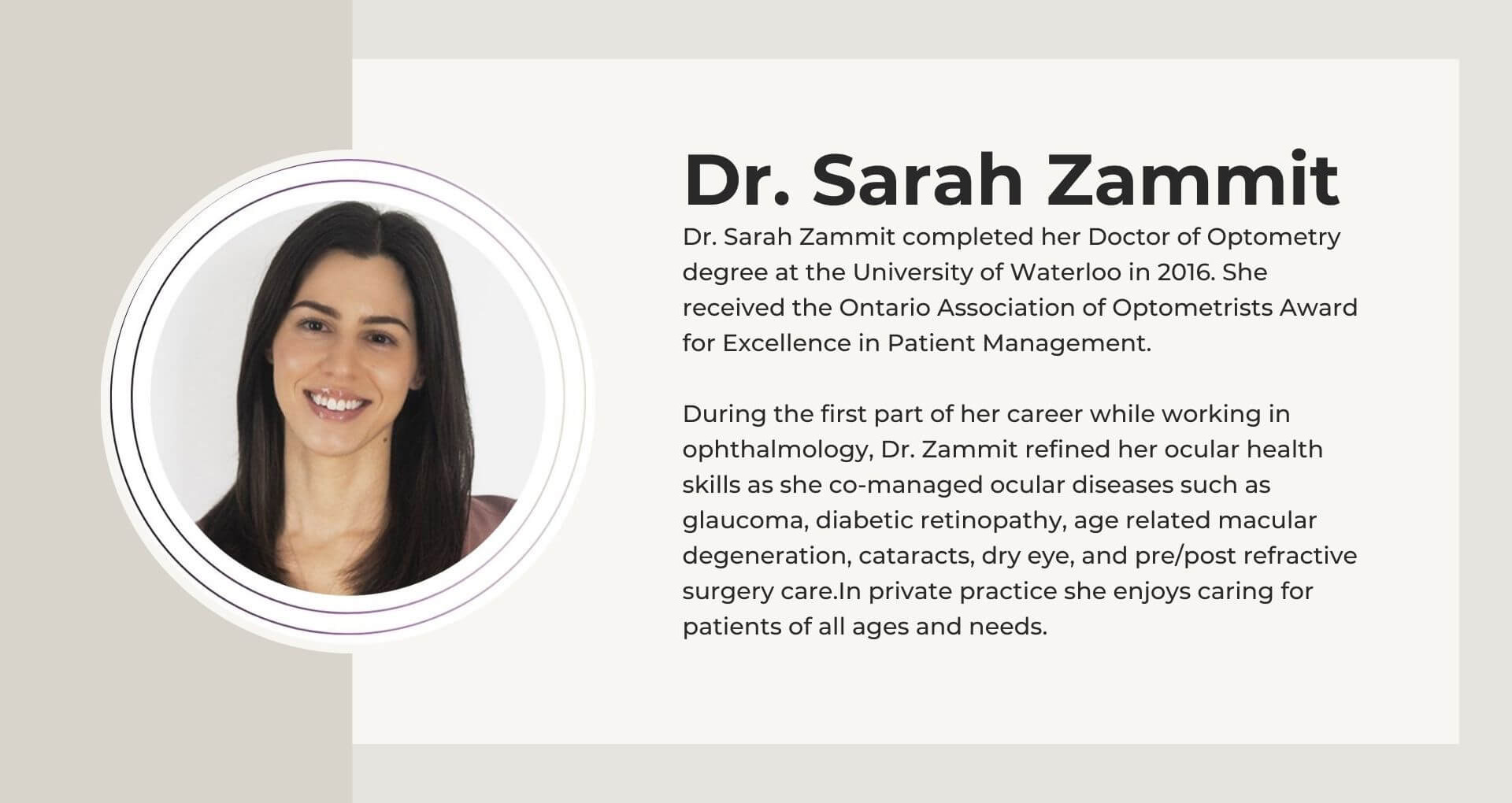Every June, at Huron Shores Optometry in Port Elgin and Kincardine, we join Optometrists worldwide to shine a spotlight on Cataract Awareness Month, a vital initiative dedicated to illuminating the issue of cataracts and their profound impact on vision. This month-long education campaign is your chance to dive deep into understanding how cataracts can cloud your world and learn the steps you can take to protect your sight.
Cataract surgery is safe and can correct vision problems caused by cataracts, making it a highly effective treatment option.
Why Cataract Awareness Matters: Cataracts are more common than you might think, especially as we age. They are a leading cause of vision impairment, affecting millions worldwide. By raising awareness, we aim to educate the public about the prevalence of cataracts and the importance of early detection.


Key Takeaways:
- Understanding the symptoms and risks of cataracts can help in early detection and treatment.
- Cataract surgery is a safe procedure that can significantly improve vision.
- Adopting healthy lifestyle choices can help prevent cataracts.
Introduction to Cataract Awareness Month
June is Cataract Awareness Month, a time dedicated to educating the public about cataracts, their symptoms, and the available treatments. Cataracts are a prevalent eye condition that can cause vision loss if not treated. By increasing awareness, we can help people identify the symptoms early and get the necessary medical attention.
Cataracts develop when the natural lens of your eye becomes cloudy, resulting in blurry or hazy vision. While this condition can affect anyone, certain factors can increase the risk, including:
- Age: The likelihood of developing cataracts increases as you get older.
- Family History: A genetic predisposition can make you more susceptible.
- Lifestyle Choices: Habits such as smoking, excessive alcohol consumption, and prolonged exposure to sunlight can contribute to the development of cataracts.
By recognizing these risk factors and taking preventive measures, you can help protect your vision.
What Are Cataracts?
Cataracts are a clouding of the lens in the eye, which leads to a decrease in vision. They can develop slowly and affect one or both eyes. The lens of your eye focuses light onto the retina. The retina then sends signals to the brain, which creates visual images. When the lens becomes cloudy, it obstructs the passage of light, resulting in blurry vision.
There are several types of cataracts, including nuclear sclerotic cataracts, cortical cataracts, and posterior subcapsular cataracts. Each type affects different parts of the lens and can cause varying symptoms. Understanding the different types can help in identifying the specific treatment needed.
Symptoms of Cataracts: Blurry Vision
Recognizing the symptoms of cataracts is crucial for early detection and treatment. Common symptoms include blurry vision, sensitivity to light, trouble seeing at night, and seeing halos around lights. Some people may also experience double vision or colours appearing faded.
If you notice any changes in your vision, it is important to contact us for a comprehensive eye exam. Early diagnosis can prevent further vision loss and improve the chances of successful treatment.
Risk Factors for Cataracts
Several factors can increase the risk of developing cataracts. Age is the most significant risk factor, as most cataracts happen because of normal aging. Other risk factors include a family history of cataracts, diabetes, smoking, and excessive alcohol consumption. Reaching out to us can help assess your risk for cataracts and provide guidance on how to mitigate these risks.
Eye injuries and prolonged exposure to UV rays can also contribute to the development of cataracts. Wearing sunglasses and protective eyewear during sports can help protect your eyes from the sun and reduce the risk of cataracts.
How Are Cataracts Diagnosed?
Cataracts are diagnosed through a comprehensive eye exam. Our optometrists perform several tests, including a visual acuity test, a dilated eye exam, and a retinal exam. These tests help in assessing the extent of the cataract and determining the best course of treatment.
During a dilated eye exam, the doctor checks for cataracts and other eye issues, making it a crucial step in early detection. During the dilated eye exam, the doctor will use eye drops to widen the pupils and examine the lens and retina using a magnifying glass. This allows for a detailed view of the eye’s internal structures and helps in identifying any abnormalities.
Treatment for Cataracts
The primary treatment for cataracts is surgery. Cataract surgery is a safe procedure where the clouded lens of the eye is removed and replaced with an artificial lens known as an intraocular lens. This surgery can get rid of cataracts and correct vision problems caused by the condition.
In some cases, new glasses or contact lenses may be prescribed to improve vision temporarily. However, surgery is the most effective way to restore clear vision and prevent further vision loss.
Cataract Surgery: What to Expect
Cataract surgery is one of the most common and successful surgical procedures performed today. The surgery is typically done on an outpatient basis and takes about 15-20 minutes per eye. Most patients experience significant improvement in their vision within a few days.
During the surgery, the cloudy lens is removed, and an artificial lens is implanted in its place. The artificial lens is designed to enhance vision and can correct refractive errors such as nearsightedness or farsightedness. The good news is that surgery is safe and corrects vision effectively.
Curious about how to prepare for cataract surgery?
Here are some tips to consider leading up to the day of the surgery (Provided by the Canadian Association of Optometrists)
- It is important to maintain good eye health before undergoing cataract surgery. Your optometrist may recommend eyelid hygiene and dry eye treatments. These precautions have shown to improve comfort and vision after surgery. 1
- Generally, a consultation appointment is set up prior to the surgery. Discuss risks, different lens implant options and your vision needs with the cataract surgeon. Ask any questions or concerns you may have.
- Measurements of the eye will be made prior to surgery.
- Let your optometrist and ophthalmologist know of any medical conditions you have, such as diabetes and high blood pressure.
- Provide your optometrist and ophthalmologist with a list of medications you take.
- You may be instructed to stop taking certain medications before or on the day of the surgery.
- You may be asked to use eye drops before the surgery.
- You may be asked to fast before the surgery.
- Arrange to take the day off from work on the day of the surgery.
- Arrange for a ride home on the day of the surgery.
- On the day of the surgery:
- Bring your health card
- Bring other insurance cards you may have
- Bring sunglasses
- Do not wear eye makeup
- Do not wear contact lenses
- Make sure you leave with the necessary post-surgery instructions
SOURCE: Canadian Association of Optometrists: How to Prepare for Cataract Surgery
Risks of Cataract Surgery
While cataract surgery is generally safe, there are some risks involved. Potential complications include infection, inflammation, bleeding, and retinal detachment. However, these risks are rare, and most patients recover without any issues.
It is crucial to adhere to the doctor's post-operative instructions for a smooth recovery. These instructions may include using prescribed eye drops, avoiding strenuous activities, and attending follow-up appointments to monitor your healing progress.
Preventing Cataracts
Although cataracts cannot always be prevented, certain lifestyle choices can reduce the risk. Eating a healthy diet rich in fruits, vegetables, leafy greens, and nuts can provide essential nutrients that support eye health. Avoiding smoking and limiting alcohol consumption can also help protect your eyes.
Wearing sunglasses that block UV rays and using protective eyewear during sports or activities that pose a risk of eye injury can further reduce the risk of developing cataracts.


Wearing sunglasses that provide 100% UVA and UVB protection can help prevent cataracts, especially for those who spend a lot of time outdoors.
Regular eye exams are essential for early detection and management of any eye conditions.
The Role of Nutrition in Eye Health
Healthy food choices play a significant role in maintaining good vision and preventing cataracts. Foods rich in antioxidants, such as vitamins C and E, can help protect the eyes from damage caused by free radicals. Leafy greens, nuts, and colorful fruits and vegetables are excellent sources of these nutrients.
Omega-3 fatty acids, found in fish and flaxseeds, are also beneficial for eye health. Including these foods in your diet can help reduce the risk of cataracts and other eye conditions.
The Impact of UV Exposure
Prolonged exposure to UV rays can increase the risk of cataracts. Wearing sunglasses that block 100% of UV rays can protect your eyes from harmful radiation. Look for sunglasses labeled as "UV400" or "100% UV protection" to ensure adequate protection.
Did you know we also celebrate International Sunglasses Day? This year June 27th has been designated as International Sunglasses Day, so plan to stop into our Port Elgin or Kincardine, ON office to see the variety of trending UV sunglasses and prescription sunglasses we have available in our beach towns.



The Importance of Regular Eye Exams
Regular eye exams are crucial for maintaining good vision and detecting eye conditions early. One of our eye doctors can check for cataracts and other issues through a comprehensive eye exam. Regular check-ups are essential for early detection, allowing for timely treatment and can prevent further vision loss.


It is recommended to have an eye exam every one to two years, especially for individuals over the age of 60 or those with risk factors for cataracts. A regular check-up can help monitor your eye health and ensure any changes are addressed promptly.
Reach out to us to book an eye exam in Port Elgin, ON or Kincardine, ON today!
Latest Research on Cataracts
Ongoing research on cataracts is focused on improving treatment options and understanding the underlying causes of the condition. Advances in surgical techniques and artificial lens technology have made cataract surgery more effective and safer than ever before.
Researchers are also exploring non-surgical treatments, such as eye drops, that could potentially dissolve cataracts or slow their progression. While these treatments are still in the experimental stage, they hold promise for the future of cataract management.
Pediatric Cataracts
Cataracts are not limited to older adults; they can also occur in children. Pediatric cataracts can be congenital (present at birth) or develop later in childhood. Early detection and treatment are crucial for preventing vision loss and ensuring proper visual development.
Treatment for pediatric cataracts typically involves surgery to remove the cloudy lens and replace it with an artificial one. Regular follow-up care is essential to monitor the child’s vision and ensure optimal outcomes.
Traumatic Cataracts
Traumatic cataracts can develop after an eye injury. The impact can cause the lens to become cloudy, leading to vision problems. Prompt medical attention is necessary to assess the extent of the injury and determine the appropriate treatment.
In some cases, surgery may be required to remove the damaged lens and replace it with an artificial lens.
If you or someone you know has experienced an eye injury of any kind, emergency eye exams are available with Huron Shores Optometry in Kincardine or Port Elgin, Ontario.
Protective eyewear can help prevent eye injuries and reduce the risk of traumatic cataracts. We offer several options for safety glasses at Huron Shores Optometry.


Secondary Cataracts
Secondary cataracts, also known as posterior capsular opacification, can occur after cataract surgery. This condition happens when the lens capsule, which holds the artificial lens in place, becomes cloudy. It can cause symptoms similar to the original cataract, such as blurry vision and sensitivity to light.
Treatment for secondary cataracts involves a simple laser procedure called YAG laser capsulotomy. This procedure creates an opening in the cloudy capsule, allowing light to pass through and restoring clear vision.
The Role of Genetics in Cataracts
Genetics can play a role in the development of cataracts. A family history of cataracts can increase the likelihood of developing the condition. Understanding your genetic risk can help you take preventive measures and seek early treatment if necessary.
If you have a family history of cataracts, it is important to inform your eye doctor and schedule regular eye exams. Early detection and intervention can help preserve your vision and prevent complications.
The Connection Between Diabetes and Cataracts
Diabetes is a significant risk factor for cataracts. High blood sugar levels can cause changes in the lens, leading to clouding and vision problems. Managing diabetes through proper diet, exercise, and medication can help reduce the risk of developing cataracts and other eye conditions.
Regular eye exams are essential for individuals with diabetes to monitor eye health and detect any changes early. Early treatment can prevent vision loss and improve overall eye health.
The Impact of Smoking on Eye Health
Smoking is a major risk factor for cataracts and other eye conditions. The harmful chemicals in cigarettes can damage the lens and increase the likelihood of developing cataracts. By quitting smoking you can significantly reduce the risk for cataracts and improve your overall eye health.
If you smoke, consider seeking support to quit. Your eye health and overall well-being will benefit from making this positive change.
The Benefits of Wearing Sunglasses
Wearing sunglasses is one of the simplest and most effective ways to protect your eyes from UV rays. Sunglasses can reduce the risk of cataracts and other eye conditions caused by sun exposure. Choose sunglasses that offer 100% UV protection for the best results.


Wearing a hat with a brim can also provide extra protection for your eyes and face. This is especially important during outdoor activities or when spending extended periods in the sun.
The Role of Protective Eyewear in Preventing Eye Injuries
Protective eyewear is essential for preventing eye injuries during sports and other activities. Eye injuries can lead to traumatic cataracts and other vision problems. Wearing protective eyewear can help reduce the risk and keep your eyes safe.
Look for eyewear that meets safety standards and provides adequate protection for your specific activity. Regularly inspect and replace protective eyewear to ensure it remains effective.
The Importance of Early Detection
Early detection of cataracts is crucial for successful treatment and preventing vision loss. Regular eye exams can help identify cataracts in their early stages and allow for timely intervention. If you notice any changes in your vision, schedule an appointment with us!
Early treatment can improve outcomes and preserve your vision. Don't wait until your vision becomes significantly impaired to seek help.
The Role of Technology in Cataract Surgery
Advances in technology have revolutionized cataract surgery, making it safer and more effective. Modern surgical techniques, such as laser-assisted cataract surgery, offer greater precision and faster recovery times. Artificial lenses have also improved, providing better visual outcomes.
Staying informed about the latest advancements in cataract surgery can help you make informed decisions about your treatment options. Discuss these options with your eye doctor to determine the best approach for your needs.
The Impact of Cataracts on Daily Life
Cataracts can significantly impact daily life, making it difficult to perform routine tasks such as reading, driving, and recognizing faces. Because cataracts can cause vision to become blurry, it becomes difficult to perform everyday tasks such as reading and driving. Blurry or hazy vision can reduce the quality of life and increase the risk of accidents and injuries.
Seeking treatment for cataracts can restore clear vision and improve overall quality of life. Don’t let cataracts hold you back from enjoying your daily activities.
The Importance of Education and Awareness
Education and awareness are key to preventing and managing cataracts. We encourage you to be proactive in your eye health care, so understanding the risk factors, symptoms, and treatment options, are important to help you make good decisions. Cataract Awareness Month is an opportunity to spread knowledge and encourage others to prioritize their eye health.
Participate in awareness campaigns, share this information with friends and family, and stay informed about the latest research and advancements in cataract treatment. Together, we can make a difference in the fight against cataracts.
In Summary: The Power of Routine Eye Examinations

One of the key messages of Cataract Awareness Month is the critical role of regular eye exams. These check-ups are not just about updating your prescription; they are essential for catching cataracts as early as possible.
Join us this month in spreading the word about cataracts. It's a good time for you to talk with loved ones, and friends who may be suffering from some of the symptoms of cataracts. Together, we can ensure that everyone has the knowledge they need to keep their vision clear and bright.
Cataracts can lead to vision loss if left untreated, but early detection and treatment can significantly improve outcomes. By understanding the risk factors and taking preventive measures, you can protect your vision and maintain good eye health. Regular eye exams, a healthy diet, and protective eyewear are essential for preventing cataracts and other eye conditions.
Cataract surgery is a safe and effective treatment that can restore clear vision and improve quality of life. Stay informed about the latest research and advancements in cataract treatment to make informed decisions about your eye health.
Don't let cataracts cloud your future—get informed, get checked, and see the difference!
Reaching out to us for a routine eye appointment is the first step.
Your Huron Shores Optometry Team!
Port Elgin, ON and Kincardine, ON
FAQ about Cataracts

What are the common symptoms of cataracts?
Common symptoms of cataracts include blurry vision, sensitivity to light, trouble seeing at night, and seeing halos around lights. Some people may also experience double vision or colors appearing faded. If you notice any changes in your vision, it is important to reach out to us for a comprehensive eye exam.
How is cataract surgery performed?
Cataract surgery involves removing the eye's cloudy lens and replacing it with a clear artificial lens, known as an intraocular lens. The surgery is typically done on an outpatient basis and takes about 15-20 minutes per eye. Most patients experience significant improvement in their vision within a few days.
Can cataracts be prevented?
While cataracts cannot always be prevented, certain lifestyle choices can reduce the risk. Eating a healthy diet rich in fruits, vegetables, leafy greens, and nuts can provide essential nutrients that support eye health. Avoiding smoking, limiting alcohol consumption, and wearing sunglasses that block UV rays can also help protect your eyes. Regular eye exams are essential for early detection and management of any eye conditions.

Book an Appointment!
Legal Notice
The information below applies to all the information contained on the huronshoresoptometry.com Website.
The users of this Website agree to comply with the terms set out below.
TERMS OF USE
Huron Shores Optometry owns and operates a Website at huronshoresoptometry.com (hereinafter referred to as the “site” or “Website”). Huron Shores Optometry® trademark except as otherwise noted on the site, which is accessible to all users (hereinafter referred to as the “user” or “users”). Refrain from using this Website unless you agree to comply with the conditions.
RISKS ASSOCIATED WITH INFORMATION
Information on this Website is intended for informational purposes only and has no contractual value. Huron Shores Optometry reserves the right to modify the content of this site. At any time, without prior notice. Huron Shores Optometry assumes no liability for errors or omissions in the content of this Website or for information reliability or completeness of said information.
Information published on this Website is based on marketing, statistical or commercial services or other sources the Huron Shores Optometry considers reliable and are the sole responsibility of their authors and not of Huron Shores Optometry. We do not assume any liability for the accuracy or completeness of said information and in no circumstance should this information be regarded as such. Opinions and information as presented on this site reflect our position as of the date of publication and are subject to change without notice.
UPDATING OF THE WEBSITE UNDER THE RESPONSIBILITY OF Huron Shores Optometry
Huron Shores Optometry, its employees and directors will not be liable for damages incurred as a result of the information published on this site, for the views and advice published, expressed or implied regardless of its nature.
Huron Shores Optometry expressly refuses any and all responsibility for the manner in which the user of the site may use the information contained, in any decisions that may be made and in the actions that may or may not be taken based on said information.
COPYRIGHT PROTECTION
Presentations made and contained on this site are the intellectual property of Huron Shores Optometry. Reproduction in whole or in part of this site on any other medium in prohibited without the express permission of Huron Shores Optometry.
User may solely use the information contained on this site for personal use. Reproduction in whole or in part of said information on paper may only be performed for personal use. Said information is not to be copied, distributed or transmitted to third parties nor may it be inserted in a document or other medium.
HYPERTEXT LINKS
The links to external Websites and their content shall not be prejudged and Huron Shores Optometry will in no way be held responsible for any direct or indirect prejudice that may result from gaining access to and usage of said sites.
CONFIDENTIALITY
Huron Shores Optometry draws the attention of the user to the fact that all communication transmitted through this Website remains in the public domain and not the private domain. Huron Shores Optometry cannot accept responsibility for the security of the transmission of information.
The confidentiality and integrity of the information circulating over the internet cannot be ensured. Huron Shores Optometry cannot accept responsibility in the case that data contained on this site is intercepted.
Huron Shores Optometry site uses cookies. These cookies are small text files saved on the hard disk of a user's computer. These files are completely harmless and cannot contain viruses. These cookies are used to analyze visits to the site. Huron Shores Optometry calls upon Google Analytics to help track how users use the site. The number of visitors, path taken to access the site and length of each visit are measured. The cookies cannot, in any way, identify the user. All data is completely anonymous and compiled solely for the purpose of improving the site and tailoring the content to the needs of its visitors.
The person responsible for the protection of personal information is the owner of : Huron Shores Optometry
VIRUSES AND TECHNICAL GLITCHES
Huron Shores Optometry makes no representations that the content of this site is free of infections, viruses, worms, Trojan horses and/or other codes with contaminating or destructive properties. It is the user's responsibility to take protective measures.
Huron Shores Optometry DECLINES ALL RESPONSIBILITY IN THE EVENT OF ANY INTERRUPTION OR NON-AVAILABILITY OF THE SERVICE
Under no circumstances shall Huron Shores Optometry be held responsible for transmission errors of any sort, such as loss of or damage to data, or changes of any type whatsoever, including direct or indirect damage resulting from the use of the services provided on this site.
JURISDICTION
This Agreement shall be governed by and construed in accordance with the laws of the province of Ontario.
Any dispute arising of this Agreement shall be brought before the court in the judicial district of
Huron Shores Optometry's head office.
Address:
325 Lambton Street
Kincardine, ON
N2Z 2Y1;
Tel: 519 396-3663.
PUBLISHING FIRM
Huron Shores Optometry
325 Lambton Street
Kincardine, ON
N2Z 2Y1
Tel: 519 396-3663
Acceptance of the Privacy Policy
Thank you for visiting huronshoresoptometry.com (the “Website”), provided to you by Huron Shores Optometry (“We”). We respect the privacy of every individual who visits the Website and are sensitive to privacy issues on the Internet. We believe it is important that you know how we deal with information received about you.
This privacy policy (the “Privacy Policy”) explains how we collect, use, disclose, and protect the personal information of our customers and Website users ("you"), describes the types of information we may collect from you or that you may provide to us, and our practices for collecting, using, maintaining, protecting, and disclosing that information. The Website is for general audiences and is not specifically targeted to or intended for use by children.
We will only use your personal information in accordance with this Privacy Policy unless otherwise required by applicable law. We take steps to ensure that the personal information that we collect about you is adequate, relevant, not excessive, and used for limited purposes. Privacy laws in Canada generally define "Personal Information" as any information about an identifiable individual, which includes information that can be used on its own or with other information to identify, contact, or locate a single person.
By accessing or using the Website, you are accepting the practices described in this Privacy Policy, and you are consenting to our processing of your information as set out in this Privacy Policy. We may modify or update this Privacy Policy from time to time; if we change this Privacy Policy in a manner that materially impacts your privacy rights, we will provide a notice to you. Your continued use of the Website or our services after any modification to this Privacy Policy will constitute your acceptance of such modification. However, when required by law, we will confirm your consent to the revised Privacy Policy terms. This Privacy Policy is incorporated into and considered a part of the Website Terms and Conditions of Use, located here
What information we collect
We collect and use several types of information from and about you, including:
- Personal Information, that we can reasonably use to directly or indirectly identify you, such as your full name, email address, telephone number and any other identifier we may use to contact you online or offline.
- Non-personal information is information that does not directly or indirectly reveal your identity or directly relate to an identified individual, such as demographic information, or statistical or aggregated information. Statistical or aggregated data does not directly identify a specific person, but we may derive non-personal statistical or aggregated data from Personal Information. For example, we may aggregate Personal Information to calculate the percentage of users accessing a specific Website feature.
How we collect the information
Information You Provide to Us
The information we collect directly from you may include:
- Communicating with us: When you contact us about a customer service issue, Vision Entrepreneur services or to make other inquiries, we collect the content of those communications, as well as your full name, clinic name, email, phone number, city, province, and any additional information that allows us to answer your request.
Information We Collect While You Interact With Us Through Cookies and Other Automatic Data Collection Technologies
- Refer to Cookie Policy (here)
Information We Collect About You From Third Parties
- Refer to Cookie Policy (here)
How we use your information
We use your information, including your Personal Information, to manage our business and to maintain and develop commercial relationships with you. We will collect, use, and disclose such information only to the extent that is necessary for those purposes.
We use information that we collect about you or that you provide to us, including any Personal Information:
- To provide you with information, products, or services that you request from us.
- To fulfill the purposes for which you provided the information or that were described when it was collected, or any other purpose for which you provide it.
- To improve the Website, products or services, marketing, or customer relationships and experiences.
- To allow you to participate in interactive features, social media, or similar features on the Website.
- To measure or understand the effectiveness of the advertising we serve to you and others, and to deliver relevant advertising to you.
- In any other way we may describe when you provide the information.
- For any other purpose with your consent.
How we share your information
We will not rent or sell your information to third parties without your consent. We only share your data as specifically provided in this Privacy Policy.
Other Disclosures
In addition to any disclosure you may have consented to or permitted under the terms of this Privacy Policy, we may transfer your data, including Personal Information to third parties in the following limited circumstances:
- information you expressly consent to be shared;
- when relating to anonymized information (individuals cannot be identified by it);
- when you decide to make the information indexable by search engines, to share or to distribute the information to people or otherwise to make it available to the public;
- to satisfy any applicable law, regulation, legal process or enforceable governmental request within or outside your country of residence when we have a good faith belief that the law requires it;
- to enforce this Privacy Policy, the Terms, or an agreement, including investigation of potential violations thereof;
- to detect, prevent, or otherwise address fraud, security or technical issues, or protect the operations or you;
- to protect our rights, property or safety as well as yours, the public, or others;
- in connection with an acquisition, merger, change in control, debt financing, reorganization, sales of assets, bankruptcy or other change of our corporate structure or status; or
- as necessary in connection with the performance of requested services or solutions, or as otherwise appropriate in connection with a legitimate need.
How we store and secure your information
Information Security
We are committed to protecting the confidentiality, integrity, availability and privacy of your Personal Information. We have put appropriate physical, technological and procedural security measures in place designed to help prevent your Personal Information from being lost, used, modified or accessed in an unauthorized way, or improperly disclosed. Examples of such measures include restricted access to offices, training of personnel, using passwords and well-defined internal policies and practices. We also use encryption technology and Secure Socket Layers ("SSL") in all areas of the Website where your personal account information is required.
In addition, we limit access to your Personal Information to those employees, agents, contractors and other third parties who have a business need-to-know. They will be required to process your Personal Information only on our instructions and they are subject to an obligation of confidentiality. Our service providers are required to maintain adequate security protections in place designed to help safeguard your Personal Information and are not permitted to use it for any purpose other than fulfilling services to us.
If you have any questions about securing your personal data, please contact us in accordance with the “How to Contact Us” section below.
Information Retention
We will retain your Personal Information for as long as it is needed:
- to provide the products and services that you have requested;
- to communicate with you about a purchase or a request you have made to us;
- to manage your choices and rights you have exercised pursuant to this Privacy Policy;
- to comply with our legal and regulatory obligations and to demonstrate compliance,
- to resolve disputes and to enforce our rights and agreements.
We may retain non-personal information that has been sufficiently aggregated or anonymized for a longer period.
Once the retention period is over, we will dispose of your Personal Information as provided for in our internal data retention and disposal policy.
Where We Store Information
We use facilities operated by "Amazon Web Services" and located in Canada as our information storage and processing infrastructure. Our service providers can also, from time to time, store your Personal Information in accordance with purposes outlined in this Privacy Policy.
How to contact us
If you have any questions about this Privacy Policy, you can contact us at 519 396-3663.










